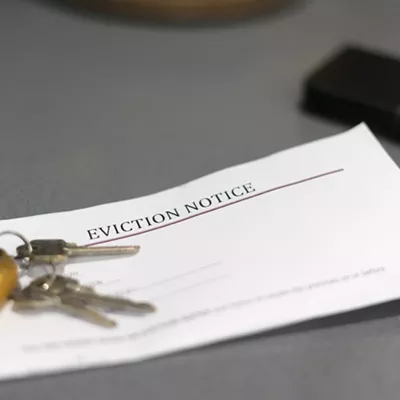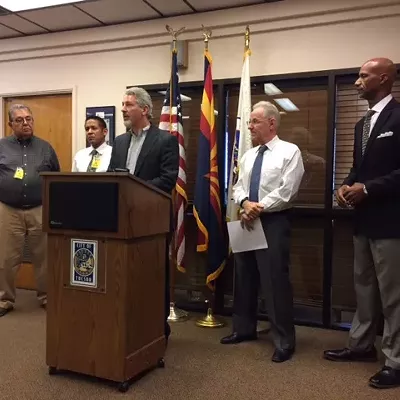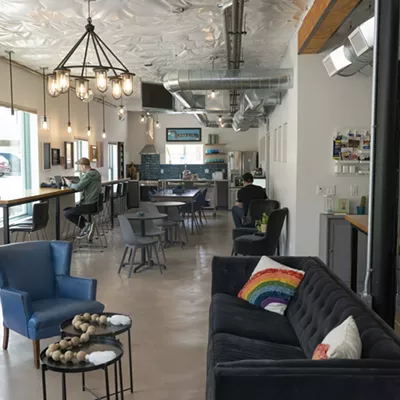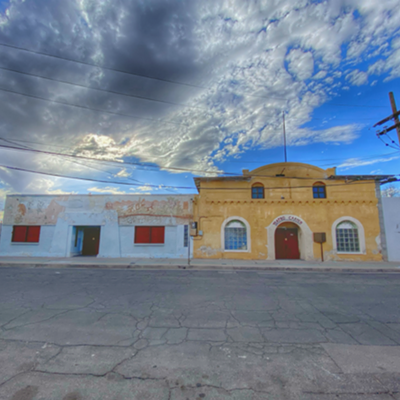But eight months ago, the Tucson couple got help from the Primavera Foundation's HomeOwnership Program. Chris and Yolanda, 44 and 45, celebrated their 20th anniversary in the new house, and Chris has started a block wall in the backyard with plans of adding a ramada and barbecue pit.
"We came from a poor side of the family. We lived from paycheck to paycheck," said Chris, who works in construction. "But Primavera gave us an opportunity."
Even with the $20,000 boost, Rodriguezes' options were limited. If they'd had their pick, they wouldn't have purchased the house they did.
"This was the last resort," Chris said.
The post-2000 housing boom that pushed property and home values skyward has caused Primavera and other nonprofit organizations to do a lot more with less. According to the Habitat for Humanity Tucson Web site, the average income went up 7 percent during the last three years, but housing costs jumped 30 percent, leaving the median price of a Tucson home at $212,000.
The Rodriguezes' $120,000 house built by Primavera is in the middle of the southside, where they grew up and met while in middle school. Their parents and grandparents always lived in the area. But now, they'd rather live somewhere on the north side, "where it's more peaceful."
"We hear sirens every night; we know what goes on here," Chris said. "We looked in other parts of town, but they were out of our range."
They aren't the only ones feeling left out. A study by the National Housing Conference showed that a household would have to earn $71,000 a year to afford a median-priced home in Tucson--and the median annual household income is $50,400, as of the second quarter of 2005, the most recent year available.
Financial advisers agree that it's not wise to use more than 30 percent of one's income on housing. But in 1999, more than half of renters (52 percent) and nearly a third of owners with a mortgage (30 percent) in Tucson were paying more than 30 percent, according to the 2000 Census. And that was before the housing boom.
The federal government defines affordable housing as being financially accessible to someone at less than 80 percent of the median income, or less than $40,300.
This is where agencies like Primavera, Habitat for Humanity and the Tucson Urban League come in--but the bottom line has forced them to change tactics and search out additional sources of funding.
Jacque Thompson, from the Tucson Urban League, said the league provides gap financing, meaning they will make up the difference of what a family can't afford, with up to $30,000 in private and government grants.
But more recently, securing funding has become "extremely complex and very competitive," said Thompson, the league's senior vice president.
"We used to get by with one source of funding," she said. "Now we have to pool together two to three just to do the same thing."
The latest economic reports about the downturn of the housing sector may seem to indicate that the situation is getting better. But Thompson explained that a shift in the economy doesn't always convert into dollars and cents for small organizations.
"Even though there's been some cooling off, we haven't felt the effects of it yet," she said.
The affordability issue is beginning to hurt firefighters, police officers and teachers, whose salaries often qualify them for affordable housing, Thompson said.
"It's a set of population you never would have thought would have a hard time getting a house," she said.
Most of the organizations have collaborated for years, but the extra financial pressure has forced them to look to each another more often than before. Thompson said if they don't have a particular house someone is looking for, they'll call another agency to see what's available.
The houses that are being built by the Tucson Urban League--the goal is 100 in the next three years--are decorated with tile roofs and ceiling fans to make each house different from the one next door. Even though this adds to the cost, Thompson said they won't back down from that standard, because it's part of their mission to provide quality living spaces while improving the neighborhoods.
"We try to build the very nicest house possible," she said. "We're not trying to make them look cheap."
At Habitat for Humanity Tucson, volunteers are also busy building houses, a tradition that may see some changes.
Right now, Habitat builds about 18 to 20 homes a year, almost all of them by volunteers with professional team leaders, said Jennifer Turner, assistant director of development for Habitat Tucson. But Habitat could consider contracting with for-profit businesses. After Habitat pays for the materials, the professional builders would donate the time and labor to build the house.
This would get the families into homes faster, Turner said, because professionals can turn around a house in a couple of months. The downside is that it would eliminate the volunteer component that's so important to Habitat's mission.
As housing and construction costs change year to year, Habitat is constantly adjusting not only the salary requirements for applicants to qualify for assistance, but the actual selling price of the homes.
"We can't sell it for less than what we can truly afford to do," Turner said. "It gets harder each year, because everything keeps going up."









